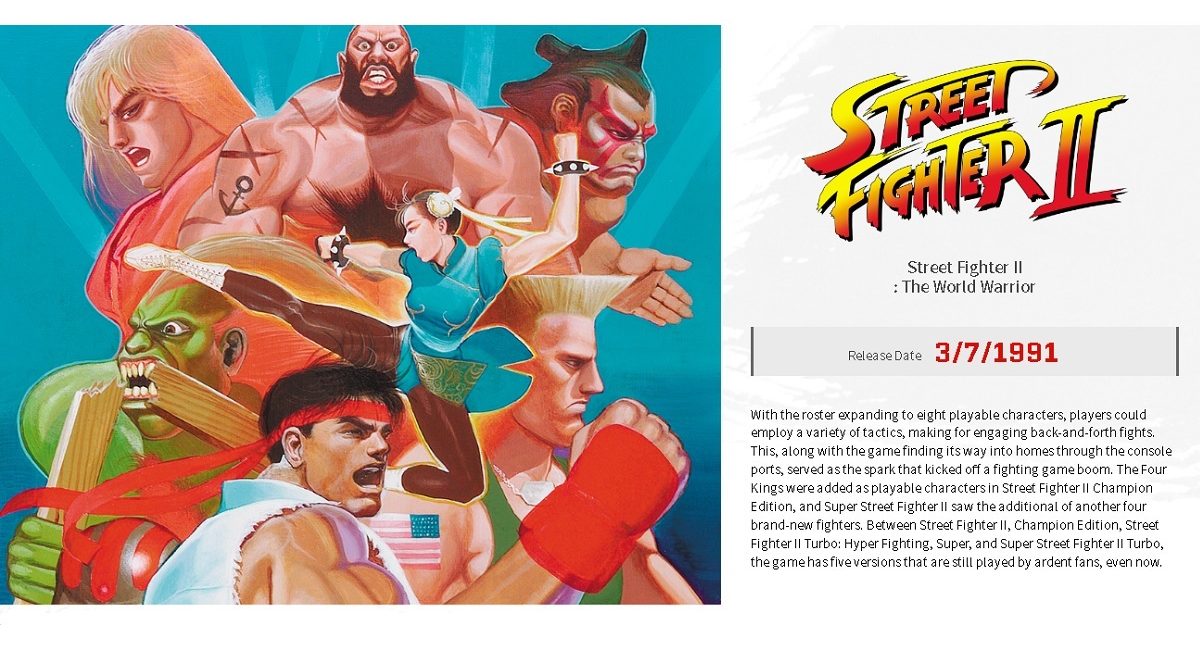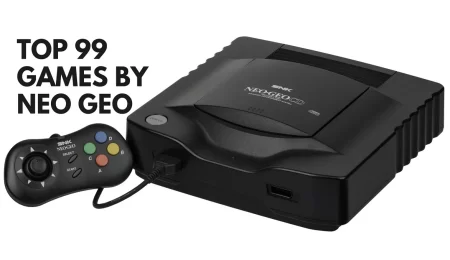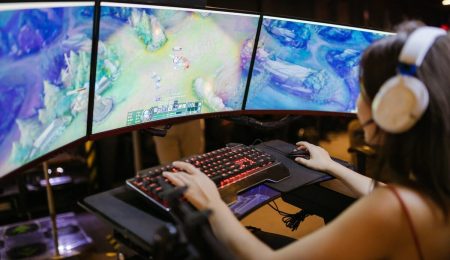Street Fighter II: The Ultimate Classic Fighting Game
Are you a fan of fighting games? If so, then you’ve undoubtedly heard of Street Fighter II. This classic game has been a staple of the gaming world since its release in 1991, and it continues to be beloved by gamers of all ages. But what exactly is Street Fighter II, and why has it had such a lasting impact on the gaming community?
Street Fighter II is a legendary video game that has become an iconic part of popular culture since its initial release in 1991. Developed and published by Capcom, Street Fighter II quickly became one of the most successful and influential fighting games of all time. Its popularity has spawned a massive franchise that includes multiple sequels, spin-offs, and adaptations across various platforms.
In this article, we will take a deep dive into the world of Street Fighter II. We will explore its origins, gameplay mechanics, characters, storylines, and impact on gaming culture. Our goal is to provide a comprehensive guide for fans and enthusiasts alike, and to help you better understand and appreciate the game’s enduring legacy.
Origins of Street Fighter II
Street Fighter II was released in 1991 as a sequel to the original Street Fighter game, which was released in 1987. The game was developed by Capcom’s Research and Development Department 1, led by Akira Nishitani and Akira Yasuda, and was initially released as an arcade game.
Street Fighter II introduced many groundbreaking features to the fighting game genre, including the ability to choose from multiple characters, each with their unique fighting styles and special moves. It also introduced a competitive two-player mode, which allowed players to compete against each other for the first time.
The gameplay of Street Fighter II was revolutionary for its time. It introduced the concept of special moves, such as Ryu’s Hadouken and Guile’s Sonic Boom, which required specific input commands to execute. The game also introduced the concept of combos, which allowed players to string together multiple attacks for increased damage. These gameplay mechanics would go on to become staples of the fighting game genre.
Gameplay Mechanics
Street Fighter II’s gameplay mechanics are simple yet challenging, requiring precision, timing, and strategy. The game is played using a joystick and six buttons, with three buttons used for punches and three buttons used for kicks. Players must use various combinations of button presses and joystick movements to execute different attacks and special moves.
Each character has their unique set of moves, which include basic attacks, special moves, and super moves. Basic attacks are simple punches and kicks, while special moves are more complex and require specific button inputs to execute. Super moves are powerful and flashy moves that require precise timing and skill to pull off.
Characters
Street Fighter II features a roster of eight playable characters, each with their unique backstory, fighting style, and special moves. The original lineup of characters includes Ryu, Ken, Chun-Li, E. Honda, Blanka, Guile, Zangief, and Dhalsim.
Over the years, many new characters have been added to the franchise, each with their unique set of moves and abilities. Some of the most popular characters include Akuma, Cammy, Sagat, and M. Bison.
Storylines
Street Fighter II’s storylines are centered around a global fighting tournament called the “World Warrior Tournament.” Each character has their reasons for participating in the tournament, ranging from personal goals to national pride.
The game’s storylines are told through various cutscenes, endings, and character interactions. Over the years, the franchise’s storyline has expanded to include multiple sequels and spin-offs, each with their unique storylines and characters.
Characters and Their Movesets
Street Fighter II features eight playable characters, each with their own unique moves and personalities. Let’s take a closer look at each character and their movesets:
- Ryu is a wandering martial artist who seeks to improve his skills through constant training and battles. His moveset is balanced, with a focus on projectiles and traditional martial arts techniques. His signature move is the Hadoken, a fireball that can be charged up for extra damage.
- Ken is Ryu’s best friend and rival. He has a similar moveset to Ryu, but with a focus on faster, more aggressive attacks. His signature move is the Shoryuken, a rising uppercut that can be used to counter airborne attacks.
- Chun-Li is the first female character in the Street Fighter franchise. She is a Chinese Interpol officer with a strong sense of justice. Her moveset is focused on fast, agile kicks, and she is one of the quickest characters in the game. Her signature move is the Spinning Bird Kick, which allows her to fly through the air while spinning and kicking.
- Guile is a military man who seeks to avenge the death of his friend at the hands of M. Bison. His moveset is heavily focused on charge moves, such as the Sonic Boom projectile and the Flash Kick anti-air move. He is a defensive character who excels at keeping opponents at bay.
- Zangief is a hulking wrestler from the Soviet Union. He is one of the strongest characters in the game, with powerful throws and devastating spinning attacks. His signature move is the Spinning Piledriver, a powerful throw that can do massive damage.
- E. Honda is a sumo wrestler from Japan. He is a heavy character who focuses on close-range attacks and powerful throws. His signature move is the Hundred Hand Slap, a flurry of rapid punches that can quickly chip away at an opponent’s health.
- Dhalsim is a yoga master from India. He is a long-range fighter who uses his stretchy limbs to attack from a distance. His signature move is the Yoga Flame, a burst of flames that can be used to keep opponents at bay.
- Blanka is a wild man from the jungles of Brazil. He is a unique character with a moveset focused on electricity and unorthodox attacks. His signature move is the Electric Thunder, a move that surrounds him with an electrical field that damages opponents who come too close.
- Balrog was first introduced in Street Fighter 2: The World Warrior in 1991. He was one of the four bosses in the game, along with Vega, Sagat, and M. Bison. Balrog is the only character in the game who doesn’t use any special moves, relying instead on his boxing skills to defeat his opponents.
- Vega is a masked Spanish fighter who uses a claw as his weapon of choice. He is a fast and agile character who excels at aerial attacks. His signature move is the Flying Barcelona Attack, a move that allows him to fly through the air while attacking with his claw.
- Sagat is a Muay Thai fighter from Thailand. He is a heavy character with a focus on powerful strikes and projectiles. His signature move is the Tiger Shot, a powerful fireball that can be used to control the pace of the match.
- M. Bison was born in Thailand, and he was trained in the art of Muay Thai. He became a powerful and ruthless dictator, and he formed Shadaloo as a means of achieving world domination. In his quest for power, M. Bison has faced off against many other skilled fighters, including the likes of Ryu, Ken, and Guile.
Impact on 90s Generation
Street Fighter, a popular video game franchise, had a significant impact on the 90s generation. The series, which started in 1987, became a global sensation with the release of Street Fighter II in 1991.
The game’s success was partly due to its innovative gameplay, which allowed players to select from a diverse cast of characters with unique fighting styles and special moves. Players could compete against each other in intense battles, either locally or online, which created a sense of community among fans.
Street Fighter also helped popularize the fighting game genre, inspiring numerous other games that followed in its footsteps. The game’s popularity spawned a wide range of merchandise, including toys, clothing, and even an animated television series.
Beyond its cultural impact, Street Fighter also had a significant influence on the gaming industry as a whole. The game’s success paved the way for future fighting games, and its legacy can be seen in games such as Mortal Kombat, Tekken, and Super Smash Bros.
For many in the 90s generation, Street Fighter represented an important part of their childhood and adolescent years. Its impact can still be felt today, as the franchise continues to evolve and attract new fans with each new release.
Image Source: Street Fighter




Leave a Comment